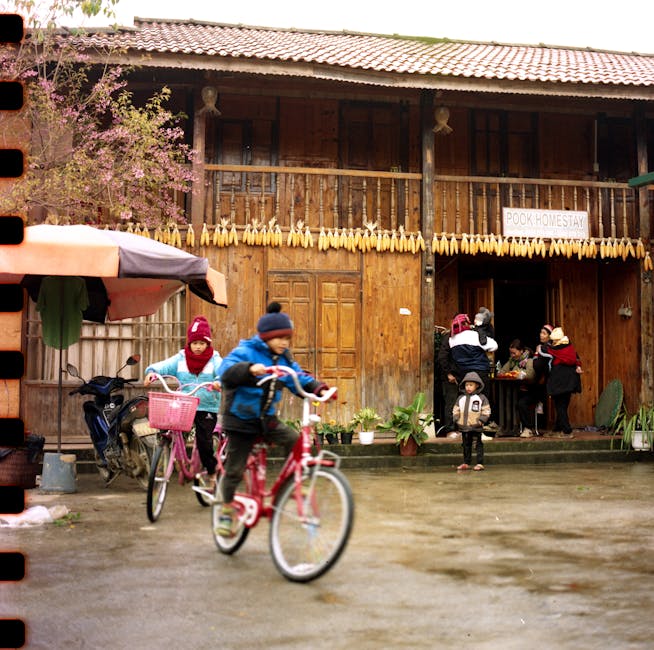A crucial aspect of a community’s contribution lies in their active participation in the tourism industry’s value chain. Local artisans and craftspeople, for example, can become key players by providing unique souvenirs and experiences. These offerings, rooted in tradition and culture, often hold a significant appeal for visitors, fostering a deeper connection with the destination. Moreover, local businesses, ranging from restaurants and accommodations to tour operators and transportation services, form the backbone of the tourism sector. Their presence not only caters to tourist needs but also strengthens the local economy, generating employment opportunities and boosting income levels within the community. This economic engagement, when strategically managed, can be a powerful engine for poverty reduction and community development.
Beyond the economic benefits, local communities possess a wealth of cultural knowledge and experience that tourists often crave. Their narratives, traditions, and customs provide a unique and authentic perspective on the destination, enriching the tourist experience considerably. Local guides and storytellers, for instance, can impart invaluable insights into the history, folklore, and social fabric of the region. This knowledge transfer, when authentic and respectful, creates a powerful bond between tourists and the community, fostering cultural understanding and appreciation.
Furthermore, local communities are critical in shaping the visitor experience. Their insights are paramount in determining which aspects of the destination are most appealing and how best to showcase them. For example, local stakeholders are often best positioned to identify historical sites, natural attractions, or community events that could be tailored to attract specific tourist segments. They can help to create experiences that showcase local customs, languages, and perspectives, thereby fostering cultural exchange and promoting respect between visitors and residents. Involvement in shaping tourism products and marketing strategies is essential for a tourism model that is genuinely beneficial for both tourists and locals.
Community engagement extends to the preservation and promotion of local heritage. Historic buildings, traditional crafts, and cultural practices often become significant attractions for tourists. A community that actively protects and promotes its heritage is better positioned to capitalize on tourism potential while safeguarding its identity and values. This could encompass the renovation of historic homes, the preservation of traditional music and dance performances, or the establishment of cultural centres that showcase the region’s unique history and traditions. Effective partnerships between communities and tourism entities are thus crucial for the success of these initiatives.
Nevertheless, the relationship between tourism and local communities is not without its complexities. A surge in tourism can sometimes lead to challenges, including increased costs of living, strain on infrastructure, environmental concerns, and cultural commodification. These issues, if not properly addressed, can undermine the long-term sustainability of tourism and negatively impact the well-being of local populations.
To mitigate these potential downsides and maximize the benefits, equitable distribution of tourism benefits is paramount. Communities must have a strong voice in shaping tourism development plans and ensuring that the economic gains from tourism are shared widely. Sustainable tourism practices that minimize environmental impact and preserve cultural heritage should be adopted. This encompasses encouraging responsible tourism behaviours among visitors and ensuring that community needs are considered in infrastructure projects.
Furthermore, promoting meaningful engagement with locals is crucial. This might involve offering opportunities for locals to work in tourism-related jobs, to share their knowledge with tourists, or to directly benefit from tourism investments. This participatory approach allows the local community to control the narrative and shape the tourism experience in a way that is authentic and beneficial to their needs.
Moreover, the development of local tourism capacities is essential. Training and education programs can empower individuals and communities to participate actively in the tourism sector. Enhancing their skills in areas such as hospitality, customer service, and guiding can elevate their economic contributions and strengthen their role in attracting tourists. This approach creates a stronger economic impact and enhances the overall experience for both tourists and the community.
Ultimately, a successful and sustainable tourism model relies on the active participation and empowerment of local communities. They possess unique perspectives, cultural richness, and experiential expertise that can enrich the tourist experience and contribute to a vibrant local economy. By fostering partnerships, promoting sustainable practices, and ensuring equitable distribution of benefits, destinations can ensure that tourism truly serves as a catalyst for positive change, fostering both economic prosperity and cultural preservation within local communities. This approach guarantees that tourism enriches both the visitors and the inhabitants of a destination, creating a win-win situation for all.
